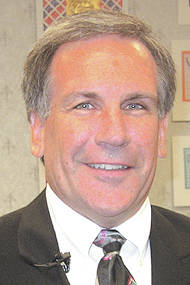
I write articles on education policy development primarily to expose the political shenanigans involved in creating laws governing education and to inform readers about what we know to be true about what children need to become successful. My hope is that what I write will generate discussions among readers about what is and is not true about how children develop and what they need from us, which is something you certainly can’t get from the political establishment.
In a recent article titled, “It’s Called Leadership,” I wrote that it would be far better for children if state and federal policies governing education were developed based on input from people who actually know something about child development, i.e., physicians and mental health specialists, instead of by politicians, bureaucrats and business leaders, who quite often could fit what they know about what matters most to kids into a thimble.
The article generated a response from Andy, which was posted on the Troy Daily News website. I don’t know who Andy is, but he wrote, “Psychologists creating education policies would be a nightmare. Policies should be driven by facts, not theories. And, the facts are, schools are the worst places for kids to learn.”
First of all, thanks to Andy for actually reading my article and commenting on it. That means my goal of generating discussion on the topic of education is working with at least one person. It seems appropriate to respond to what he wrote in the same venue that generated the discussion in the first place, which is right here.
To begin, hopefully Andy would agree that his statement, “And the facts are, schools are the worst places for kids to learn,” is not really a fact at all. It is his opinion, to which he is certainly entitled. He’s probably heard this popular refrain quite often from politicians in an attempt to justify their foolish mandates. But, I would bet there are millions of doctors, lawyers, architects, engineers, NASA scientists, astronomers, biologists, geneticists, plumbers and electricians, to name a few, who would disagree that “schools are the worst places for kids to learn.” For millions, going to school has helped them forge very successful careers and, therefore, lives.
Having said that, nowhere in my article did I suggest that psychologists should create policies governing education. What I did suggest was it seems reasonable to permit child development experts to drive educational discussions instead of politicians, who are more interested in satisfying their wealthiest campaign donors and implementing party platforms, along with other bureaucrats who may or may not know anything about how children develop.
In education and in many other aspects of our lives the people with real expertise are summarily ignored, and that makes no sense to me.
Andy and I agree that policies should be driven by facts, not theories. But, merely repeating the mantra that “schools suck” does nothing to help kids. There are plenty of facts on which we can focus to address why some kids succeed while others do not. It is a fact, for example, that poor or non-existent prenatal care can harm a child for his or her entire life. It is a fact that undue stress brought on by abuse or neglect can negatively impact a child’s development. It is a fact that nutrition impacts how children develop. It is a fact that children begin acquiring language skills at birth and those who live in a language deprived environment are at a disadvantage when compared to their peers. It is a fact that kids thrive when boundaries are established and appropriate discipline is administered. It is a fact that a child’s environment outside of school plays a major impact on his or her success. Those facts, and many more like them, are what should be driving educational policy discussions today, and too often they don’t.
Instead, policy makers push their pet projects, often with a complete disregard of the facts (see the failed charter school “experiment,” for example). This disregard for the facts explains why policies being developed by politicians today are addressing exactly the same issues they were supposedly solving more than three decades ago. If they were really created based on facts, would they still be looking for solutions to the same problems?
The answer is no.
Despite what one may think if he or she watches the impeachment fiasco unfolding before our very eyes, where members of both parties describe what we are watching in completely opposite diatribes, facts do still exist. All I’m suggesting is that instead of allowing people like those we are currently watching in D.C. engage in their partisan nonsense, we turn the discussions over to experts who actually know something about how kids develop.
I can’t imagine that Andy could disagree with that.
Tom Dunn is a former superintendent of the Miami County Educational Service Center.


